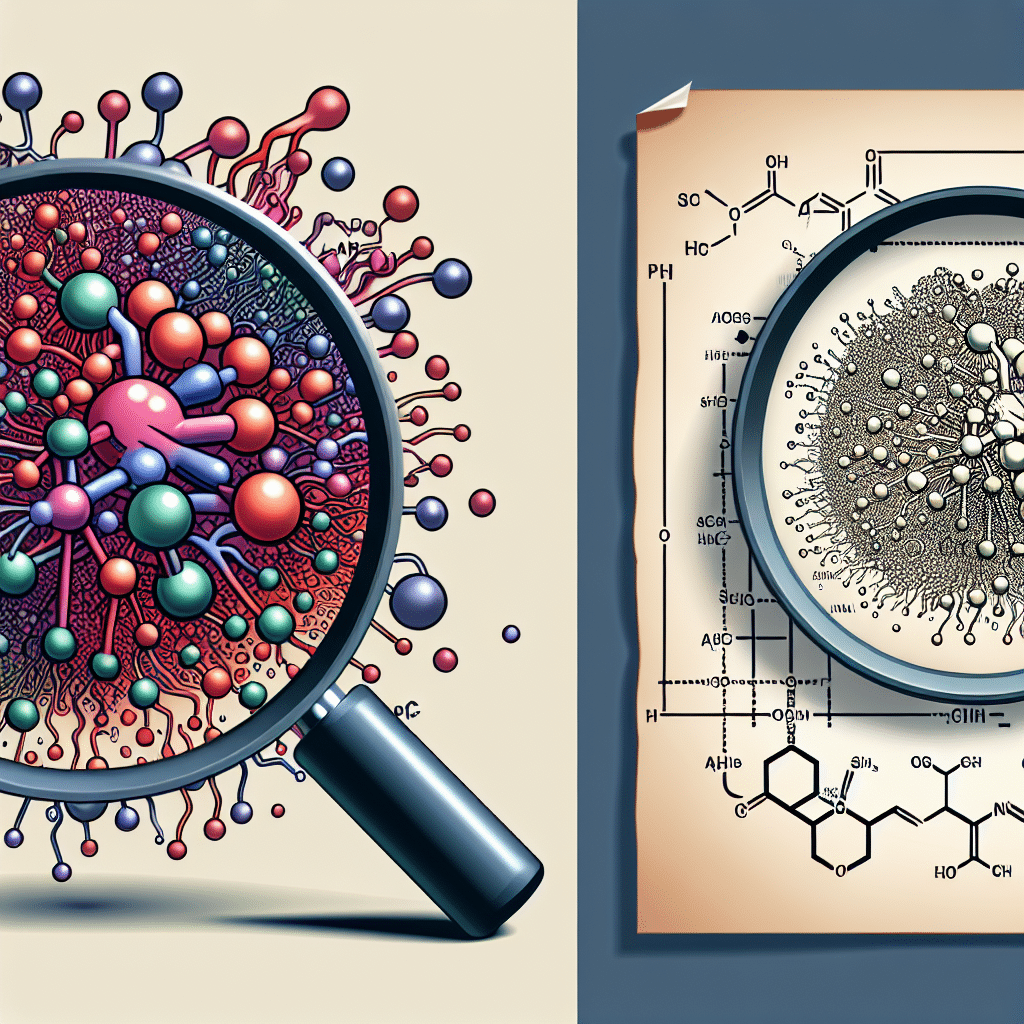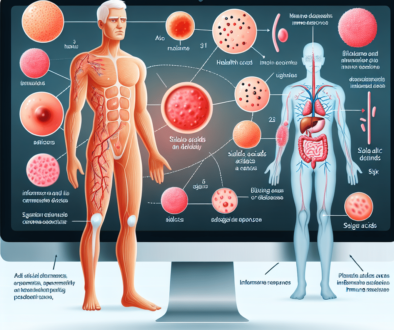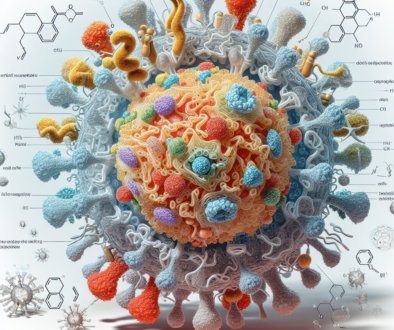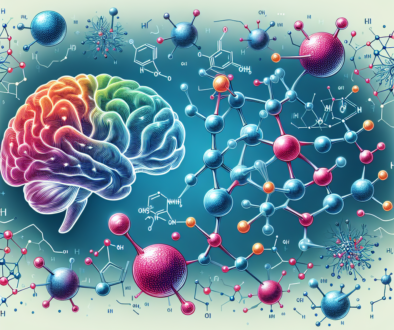Sialic Acid: The Foundation of Cellular Communication
-
Table of Contents
- Sialic Acid: Essential for Cellular Communication and Health
- Understanding Sialic Acid
- The Role of Sialic Acid in Cellular Communication
- Sialic Acid in Health and Disease
- Case Studies and Research on Sialic Acid
- Therapeutic Applications and Future Directions
- Conclusion: The Pivotal Role of Sialic Acid
- Discover ETprotein’s High-Quality Protein Products
Sialic Acid: Essential for Cellular Communication and Health

Cellular communication is the cornerstone of all biological processes in the human body. At the heart of this intricate system lies a unique molecule known as sialic acid. This sugar molecule plays a pivotal role in cellular interactions, immune responses, and the development of various diseases. In this article, we will delve into the world of sialic acid, exploring its functions, significance in health and disease, and its potential applications in medicine and biotechnology.
Understanding Sialic Acid
Sialic acid is a term that encompasses a family of nine-carbon sugars that are typically found at the outermost end of glycan chains on the surfaces of cells and soluble proteins. The most common form of sialic acid in humans is N-acetylneuraminic acid (Neu5Ac). These sialylated structures are not just decorative; they are critical for a multitude of biological processes.
The Role of Sialic Acid in Cellular Communication
Cellular communication is a complex process that involves cells talking to each other through a variety of signals. Sialic acid is a key player in this process, serving several vital functions:
- Recognition and Binding: Sialic acid acts as a recognition molecule for cells. It binds to specific receptors on other cells, facilitating cell-cell interactions.
- Modulation of Immune Responses: It helps to modulate the immune system by preventing the overactivation of immune cells, thus avoiding an autoimmune response.
- Influence on Pathogen Invasion: Many pathogens, such as influenza viruses and bacteria, exploit sialic acid residues to attach and invade host cells.
- Regulation of Lifespan of Glycoproteins: The presence of sialic acid can protect glycoproteins from degradation, thereby extending their lifespan in the bloodstream.
Sialic Acid in Health and Disease
The significance of sialic acid extends beyond basic cellular communication; it has profound implications for health and disease. Alterations in sialylation patterns are associated with several diseases, including:
- Cancer: Tumor cells often exhibit altered sialylation, which can affect tumor growth, metastasis, and immune evasion.
- Infectious Diseases: Pathogens can hijack sialic acid to evade the immune system and establish infections.
- Neurological Disorders: Sialic acid is abundant in the brain and is involved in neural development and synaptic plasticity. Abnormal sialylation can contribute to neurological diseases.
- Inflammatory Conditions: Changes in sialic acid expression on immune cells can lead to inflammatory diseases such as rheumatoid arthritis.
- Genetic Disorders: Congenital disorders of glycosylation, which include defects in sialic acid metabolism, can lead to a wide range of symptoms.
Case Studies and Research on Sialic Acid
Research into sialic acid has provided valuable insights into its role in disease. For example, studies have shown that certain cancers can be detected by analyzing changes in sialylation patterns. Additionally, research on the influenza virus has revealed that it targets sialic acid residues for entry into host cells, leading to the development of antiviral drugs that block this interaction.
Another area of interest is the therapeutic potential of sialic acid in neurodegenerative diseases. Researchers are investigating how sialic acid supplementation might benefit conditions like Alzheimer’s disease by promoting neural health and reducing inflammation.
Therapeutic Applications and Future Directions
The understanding of sialic acid’s role in health and disease has opened up new avenues for therapeutic interventions. Some potential applications include:
- Drug Development: Creating drugs that mimic or block sialic acid interactions to treat diseases.
- Cancer Therapies: Developing cancer treatments that target abnormal sialylation patterns on tumor cells.
- Vaccine Design: Designing vaccines that take advantage of sialic acid’s role in immune modulation.
- Regenerative Medicine: Using sialic acid derivatives to promote tissue regeneration and repair.
As research progresses, we can expect to see more targeted therapies that exploit the unique properties of sialic acid to treat a variety of diseases.
Conclusion: The Pivotal Role of Sialic Acid
In conclusion, sialic acid is a fundamental molecule in cellular communication and plays a critical role in maintaining health and contributing to disease. Its involvement in cell signaling, immune modulation, and pathogen interaction makes it a focal point for medical research and drug development. Understanding the complexities of sialic acid will continue to provide valuable insights into the mechanisms of diseases and lead to innovative treatments.
Discover ETprotein’s High-Quality Protein Products
For those interested in the biotechnological applications of proteins, ETprotein offers a range of high-quality protein products that can be used in research and development. Their offerings include various organic bulk vegan proteins and L-(+)-Ergothioneine (EGT) with high purity levels, suitable for industries such as nutraceuticals, pharmaceuticals, and cosmeceuticals. ETprotein’s commitment to quality and customer service makes them a go-to source for protein needs.
About ETprotein:
ETprotein, a reputable protein and L-(+)-Ergothioneine (EGT) Chinese factory manufacturer and supplier, is renowned for producing, stocking, exporting, and delivering the highest quality organic bulk vegan proteins and L-(+)-Ergothioneine. They include Organic rice protein, clear rice protein, pea protein, clear pea protein, watermelon seed protein, pumpkin seed protein, sunflower seed protein, mung bean protein, peanut protein, and L-(+)-Ergothioneine EGT Pharmaceutical grade, L-(+)-Ergothioneine EGT food grade, L-(+)-Ergothioneine EGT cosmetic grade, L-(+)-Ergothioneine EGT reference grade and L-(+)-Ergothioneine EGT standard. Their offerings, characterized by a neutral taste, non-GMO, allergen-free attributes, with L-(+)-Ergothioneine purity over 98%, 99%, cater to a diverse range of industries. They serve nutraceutical, pharmaceutical, cosmeceutical, veterinary, as well as food and beverage finished product distributors, traders, and manufacturers across Europe, USA, Canada, Australia, Thailand, Japan, Korea, Brazil, and Chile, among others.
ETprotein specialization includes exporting and delivering tailor-made protein powder and finished nutritional supplements. Their extensive product range covers sectors like Food and Beverage, Sports Nutrition, Weight Management, Dietary Supplements, Health and Wellness Products, and Infant Formula, ensuring comprehensive solutions to meet all your protein needs.
As a trusted company by leading global food and beverage brands and Fortune 500 companies, ETprotein reinforces China’s reputation in the global arena. For more information or to sample their products, please contact them and email sales(at)ETprotein.com today.














